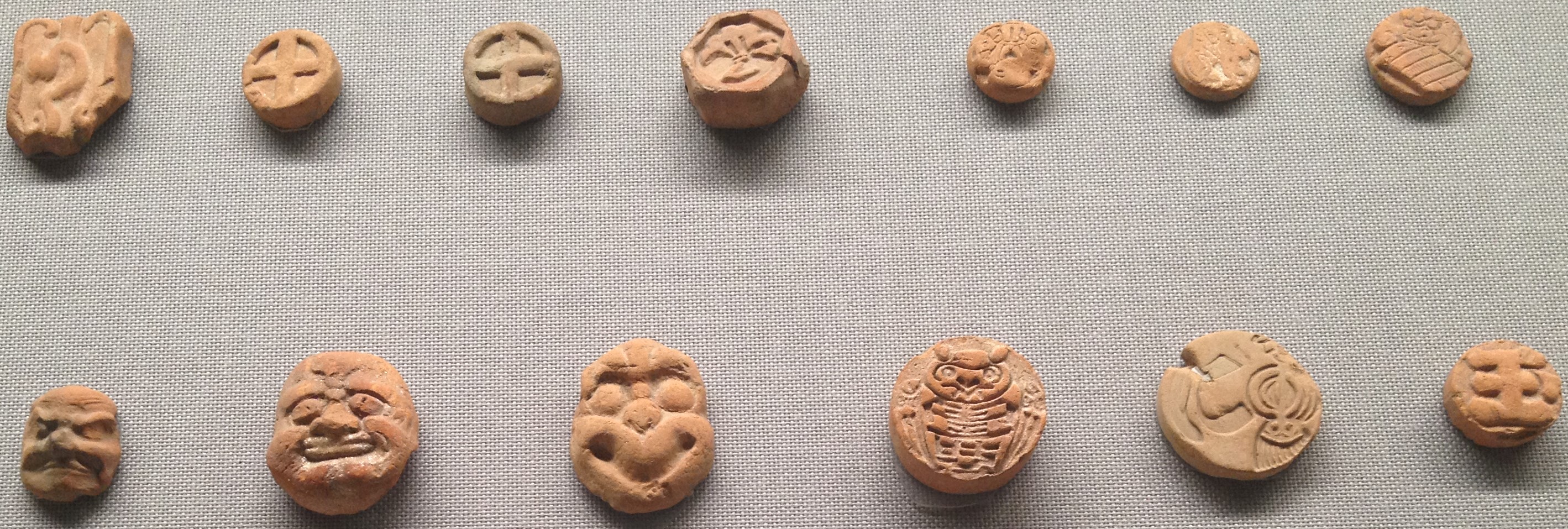|
Ttakji
''Ddakji'', or ''ttakji'' ( ko, 딱지), is a Korean game played by two or more players. ''Ddakji'' is constructed by folding two square pieces of paper together into a square. As with milk caps, the game is won by flipping the other player's card. In popular culture The South Korean variety show '' Running Man'' occasionally features ''ddakji'' in its missions. The game is also featured in the first episode of the Netflix television series ''Squid Game ''Squid Game'' () is a South Korean survival drama television series created by Hwang Dong-hyuk for Netflix. Its cast includes Lee Jung-jae, Park Hae-soo, Wi Ha-joon, HoYeon Jung, O Yeong-su, Heo Sung-tae, Anupam Tripathi, and Kim Jo ...''. References Korean games Children's games Street games {{game-stub ... [...More Info...] [...Related Items...] OR: [Wikipedia] [Google] [Baidu] |
Korean Play Takji
Korean may refer to: People and culture * Koreans, ethnic group originating in the Korean Peninsula * Korean cuisine * Korean culture * Korean language **Korean alphabet, known as Hangul or Chosŏn'gŭl **Korean dialects and the Jeju language **See also: North–South differences in the Korean language Places * Korean Peninsula, a peninsula in East Asia * Korea, a region of East Asia * North Korea, the Democratic People's Republic of Korea * South Korea, the Republic of Korea Other uses * Korean Air, flag carrier and the largest airline of South Korea See also *Korean War, 1950–1953 war between North Korea and South Korea *Names of Korea, various country names used in international contexts *History of Korea The Lower Paleolithic era in the Korean Peninsula and Manchuria began roughly half a million years ago. Christopher J. Norton, "The Current State of Korean Paleoanthropology", (2000), ''Journal of Human Evolution'', 38: 803–825. The earlies ..., the history of K ... [...More Info...] [...Related Items...] OR: [Wikipedia] [Google] [Baidu] |
Milk Caps (game)
Milk caps is a children's game played with flat circular cardboard milk caps. Players make a stack of these caps, and take turns to drop a heavier "slammer" object onto it, causing the caps to be disrupted. Each player keeps any face-up caps and is to restack the face-down caps, repeating the process until none land face-down, at which point the player who collected the most caps wins the game of milk caps. The game is also known as Pogs, under which name it was sold commercially in the 1990s. The name originates from Pog, a brand of juice made from passionfruit, orange, and guava; the use of the juice's caps to play the game preceded the game's commercialization.Lewis, Tommi: "Pogs: The Milkcap Guide", page 23. Andrews and McMeel, 1994 History The game of milk caps possibly originated in Maui, Hawaii, during the 1920s or 1930s, or possibly with origins in Menko, a Japanese card game very similar to milk caps, which has been in existence since the 17th century, during the Edo ... [...More Info...] [...Related Items...] OR: [Wikipedia] [Google] [Baidu] |
Variety Show
Variety show, also known as variety arts or variety entertainment, is entertainment made up of a variety of acts including musical performances, sketch comedy, magic, acrobatics, juggling, and ventriloquism. It is normally introduced by a compère (master of ceremonies) or host. The variety format made its way from the Victorian era stage in Britain and America to radio and then television. Variety shows were a staple of English language television from the late 1940s into the 1980s. While still widespread in some parts of the world, such as in the United Kingdom with the '' Royal Variety Performance'', and South Korea with '' Running Man'', the proliferation of multichannel television and evolving viewer tastes have affected the popularity of variety shows in the United States. Despite this, their influence has still had a major effect on late night television whose late-night talk shows and NBC's variety series '' Saturday Night Live'' (which originally premiered in 197 ... [...More Info...] [...Related Items...] OR: [Wikipedia] [Google] [Baidu] |
Running Man (South Korean TV Series)
''Running Man'' () is a South Korean variety show, formerly part of SBS' '' Good Sunday'' lineup. It was first aired on July 11, 2010. ''Running Man'' was originally classified as an "urban action variety"; a genre of variety shows in an urban environment. The MCs and guests were to complete missions at a landmark to win the race. The show has since shifted to a more familiar reality- variety show concept focused on games. It has garnered attention as being the comeback program for Yoo Jae-suk, the main MC of the program, after leaving ''Good Sunday''s '' Family Outing'' in February 2010. The show has become popular in other parts of Asia, and has gained online popularity among Hallyu fans, having been fansubbed into various languages, such as English, Persian, Spanish, Portuguese, French, Italian, Thai, Vietnamese, Chinese, Malay, Indonesian, Burmese, Arabic, Russian, and Turkish. The show has made it to the list of ''Business Insider''s 20 TV Shows of 2016. Since Apri ... [...More Info...] [...Related Items...] OR: [Wikipedia] [Google] [Baidu] |
Squid Game
''Squid Game'' () is a South Korean survival drama television series created by Hwang Dong-hyuk for Netflix. Its cast includes Lee Jung-jae, Park Hae-soo, Wi Ha-joon, HoYeon Jung, O Yeong-su, Heo Sung-tae, Anupam Tripathi, and Kim Joo-ryoung. The series revolves around a contest where 456 players, all of whom are in deep financial hardship, risk their lives to play a series of deadly children's games for the chance to win a (, , or as of broadcast) prize. The title of the series draws from a similarly named Korean children's game. Hwang had conceived of the idea based on his own economic struggles early in life, as well as the class disparity in South Korea and capitalism. Though he had initially written it in 2009, he was unable to find a production company to fund the idea until Netflix took an interest around 2019 as part of their drive to expand their foreign programming offerings. ''Squid Game'' was released worldwide on September 17, 2021, to critical accla ... [...More Info...] [...Related Items...] OR: [Wikipedia] [Google] [Baidu] |
Netflix
Netflix, Inc. is an American subscription video on-demand over-the-top streaming service and production company based in Los Gatos, California. Founded in 1997 by Reed Hastings and Marc Randolph in Scotts Valley, California, it offers a film and television series library through distribution deals as well as its own productions, known as Netflix Originals. As of September 2022, Netflix had 222 million subscribers worldwide, including 73.3 million in the United States and Canada; 73.0 million in Europe, the Middle East and Africa, 39.6 million in Latin America and 34.8 million in the Asia-Pacific region. It is available worldwide aside from Mainland China, Syria, North Korea, and Russia. Netflix has played a prominent role in independent film distribution, and it is a member of the Motion Picture Association (MPA). Netflix can be accessed via web browsers or via application software installed on smart TVs, set-top boxes connected to televisions, tablet computers, ... [...More Info...] [...Related Items...] OR: [Wikipedia] [Google] [Baidu] |
Squid Game
''Squid Game'' () is a South Korean survival drama television series created by Hwang Dong-hyuk for Netflix. Its cast includes Lee Jung-jae, Park Hae-soo, Wi Ha-joon, HoYeon Jung, O Yeong-su, Heo Sung-tae, Anupam Tripathi, and Kim Joo-ryoung. The series revolves around a contest where 456 players, all of whom are in deep financial hardship, risk their lives to play a series of deadly children's games for the chance to win a (, , or as of broadcast) prize. The title of the series draws from a similarly named Korean children's game. Hwang had conceived of the idea based on his own economic struggles early in life, as well as the class disparity in South Korea and capitalism. Though he had initially written it in 2009, he was unable to find a production company to fund the idea until Netflix took an interest around 2019 as part of their drive to expand their foreign programming offerings. ''Squid Game'' was released worldwide on September 17, 2021, to critical accla ... [...More Info...] [...Related Items...] OR: [Wikipedia] [Google] [Baidu] |
Korean Games
Korean may refer to: People and culture * Koreans, ethnic group originating in the Korean Peninsula * Korean cuisine * Korean culture * Korean language **Korean alphabet, known as Hangul or Chosŏn'gŭl **Korean dialects and the Jeju language **See also: North–South differences in the Korean language Places * Korean Peninsula, a peninsula in East Asia * Korea, a region of East Asia * North Korea, the Democratic People's Republic of Korea * South Korea, the Republic of Korea Other uses * Korean Air, flag carrier and the largest airline of South Korea See also *Korean War, 1950–1953 war between North Korea and South Korea * Names of Korea, various country names used in international contexts *History of Korea The Lower Paleolithic era in the Korean Peninsula and Manchuria began roughly half a million years ago. Christopher J. Norton, "The Current State of Korean Paleoanthropology", (2000), ''Journal of Human Evolution'', 38: 803–825. The earlies ..., the history of ... [...More Info...] [...Related Items...] OR: [Wikipedia] [Google] [Baidu] |
Children's Games
This is a list of games that used to be played by children, some of which are still being played today. Traditional children's games do not include commercial products such as board games but do include games which require props such as hopscotch or marbles (toys go in List of toys unless the toys are used in multiple games or the single game played is named after the toy; thus "jump rope" is a game, while " Jacob's ladder" is a toy). Despite being transmitted primarily through word of mouth due to not being considered suitable for academic study or adult attention, traditional games have, "not only failed to disappear but have also evolved over time into new versions." Traditional children's games are defined, "as those that are played informally with minimal equipment, that children learn by example from other children, and that can be played without reference to written rules. These games are usually played by children between the ages of 7 and 12, with some latitude on both ... [...More Info...] [...Related Items...] OR: [Wikipedia] [Google] [Baidu] |


